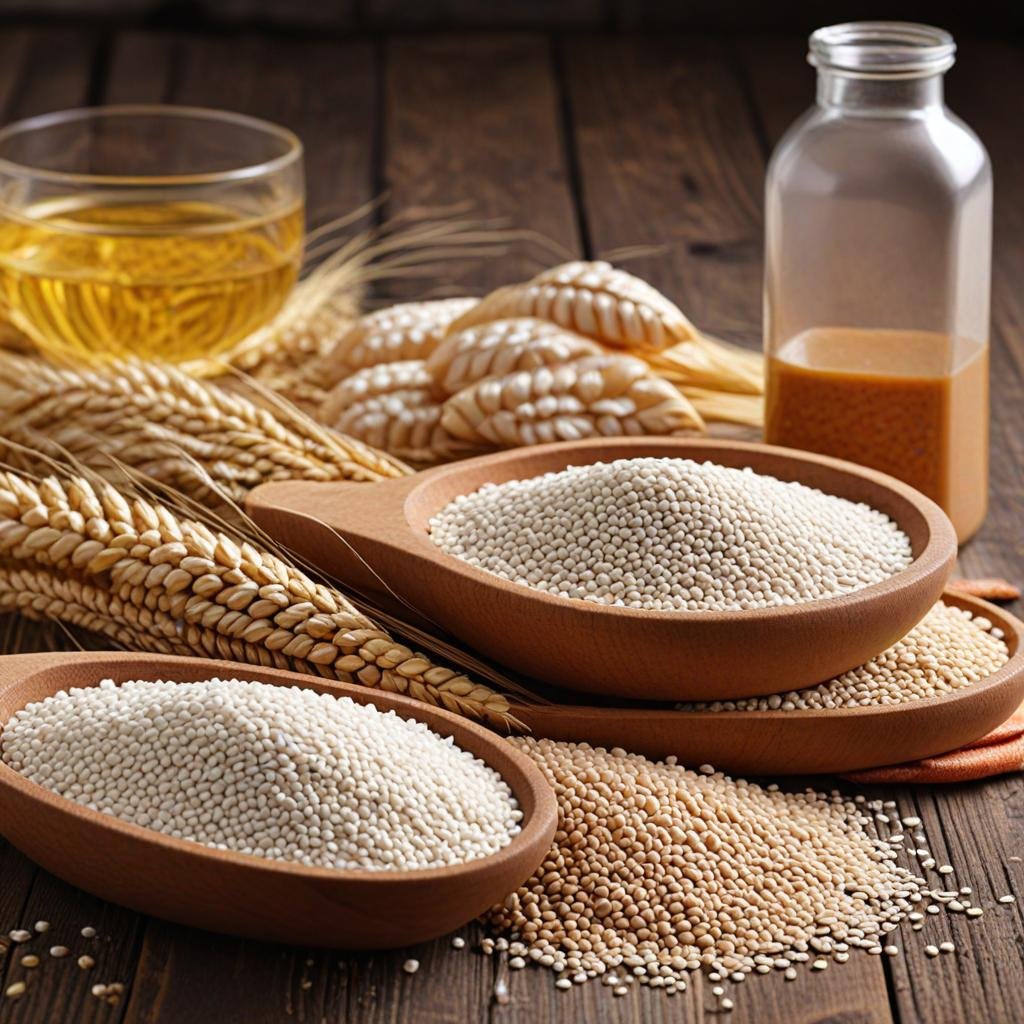Everything You Must Understand about Natural Food and Grain Preservatives

INTRODUCTION
WELCOME TO RUNZOER INDIA, where we delve into the fascinating world of natural food and grain preservatives. As awareness of the harmful effects of synthetic additives continues to grow, consumers are increasingly embracing natural alternatives to protect the freshness and nutritional value of their food. In this informative piece, we will explore the ins and outs of natural food and grain preservatives, shedding light on their benefits, effectiveness, and how they can be seamlessly integrated into your everyday life. Whether you’re a health-conscious individual, a food enthusiast, or simply curious about the topic, join us as we unravel the secrets behind these natural preservatives that are shaping the future of our food industry.
Understanding Preservatives
Preservatives serve as additives in food and grains to delay the natural decomposition process caused by factors such as oxidation and mold growth. By doing so, they help uphold the freshness, flavor, and quality of these items for an extended duration.
The concept of food preservation dates back to prehistoric times, when techniques such as smoking meat were employed to leverage the preserving properties of substances like phenols. Over time, the methods of preserving food have advanced significantly, leading to the development of a wide array of chemicals that effectively serve as preservatives. While these substances prevent decay and improve the appearance of food, the prevalent use of chemical additives in food products to impede the growth of microorganisms has raised growing concerns about their potential impact on human health.
Assessing the Role of Preservatives
It’s important to acknowledge that not all preservatives are detrimental. While the chemical preservatives used to extend the shelf life of food may indirectly affect human health, they are not inherently toxic. Nevertheless, continuous consumption of these additives may gradually pose health risks. The remarkable preserving abilities of chemicals have largely eclipsed the use of natural ingredients with similar properties over time. Despite their comparatively lower efficacy, numerous natural products have the potential to inhibit food spoilage, offering a safer alternative to chemical preservatives.
Comparing Chemical and Natural Preservatives
Preservatives manifest in various forms, serving different roles. They may counteract natural enzymes, act as antioxidants, or directly eliminate harmful microbes. Furthermore, preservation techniques can be categorized as chemical or physical. Chemical preservatives encompass substances like sorbic acid, sodium sorbate, benzoic acid, and nitrites, while natural preservation methods involve the use of salt, sugar, lemon juice, and physical processes such as freezing and pickling. Both chemical and natural preservatives possess their own advantages and disadvantages, and excessive consumption of either can be harmful. Currently, the shift towards natural preservation methods reflects a growing understanding of the potential health benefits they offer.
Exploring Natural Preservatives: Safe and Healthy Alternatives
1. Neem
Neem leaves, when placed in containers of grains or flour, effectively prevent spoilage and extend their shelf life.
2. Clove & Cinnamon
These aromatic spices not only enhance flavor but also offer natural protection against food decay.
3. Garlic
Renowned for its antiviral properties, garlic combats bacteria in food, thereby prolonging its freshness. Including garlic in dishes like soups and dressings facilitates the preservation of food.
4. Salt & Sugar
Widely used in cooking, salt and sugar facilitate food preservation and are essential in preparing items such as pickles, fish, and jams.
5. Castor Oil
Traditionally used for preserving food grains, castor oil exhibits antifungal and antibacterial properties, contributing to the extended shelf life of food products. Recognized as safe by regulatory bodies, it is a trusted natural preservative in the food industry.
6. Lemon
Leveraging its citric acid content, lemon serves as an effective preservative for fruits when stored in refrigeration. Both the peels and flesh of lemons can be utilized to prevent food spoilage.
7. Oregano
With natural antimicrobial properties, oregano can be utilized as a preservative for meats and certain breads, contributing to natural food preservation.
8. Vinegar
With its potent acetic acid content, vinegar stands out as a natural preservative that eliminates microbes and prevents food spoilage while enhancing flavor. Commonly used in pickles, it serves as a healthy preservative for various foods.
As the demand for natural products continues to rise, it becomes essential to seek out reputable sources for high-quality natural preservatives. For instance, companies like RUNZOER INDIA offer premium castor oil products, harnessing the power of nature to contribute to the preservation of food and its safety.
